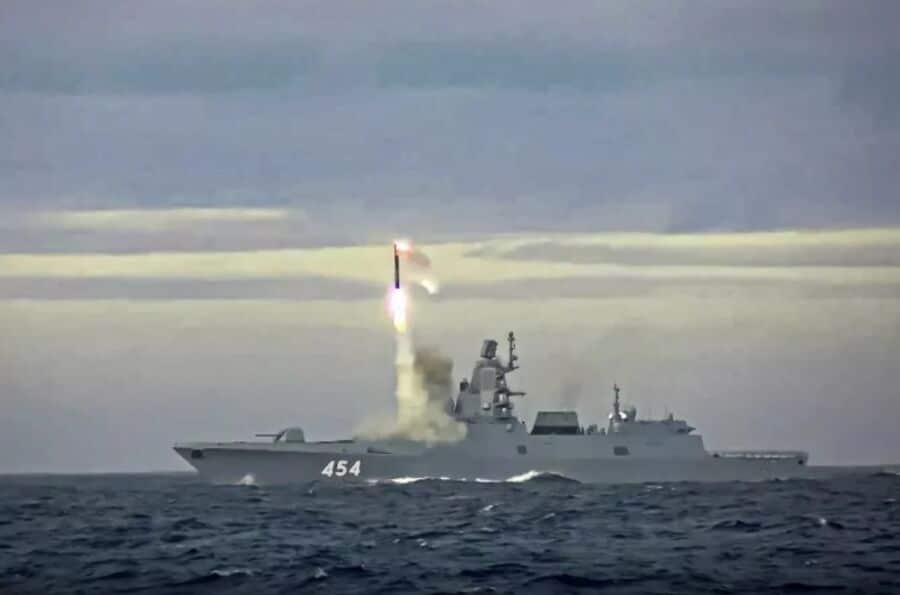Moscow warns NATO? Russia tests hypersonic missiles.
The Russian Defense Ministry released images yesterday (Sunday) showing the country’s forces testing an advanced hypersonic missile in the Barents Sea (in the Arctic Ocean).
The American publication noted that Russia began large-scale military exercises called Zapad 2025 on Friday, and this situation will continue until tomorrow, Tuesday, September 16. These exercises will be held throughout Russia, with Belarus as a key ally of Moscow in the Baltic and Barents Seas.
The Newsweek analyst considered the exercise to be particularly significant after the entry of nearly 20 Russian drones into the airspace of Poland, a member of the NATO military alliance; an exercise that Polish Foreign Minister Radoslaw Sikorski also considered a “test” for NATO.
The Russian government also announced on Sunday that the crew of the Admiral Golovko frigate of the Northern Fleet had fired a “Zirkan missile” at a naval target in the Barents Sea. The Admiral Golovko frigate has been known for carrying Zirkan missiles for years.
Moscow said in a post on the Telegram messaging app after the release of the aforementioned video showing the launch of the Zirkan missile: “The target was destroyed by a direct hit.”
The Zirkan missile has a range of up to 1,000 kilometers and a speed of Mach 9, nine times the speed of sound.
The American Missile Defense Advocacy Alliance, which promotes US missile and defense strategies, has considered the Zirkan strategically valuable because of its speed.
Ukrainian analysts also announced in February 2024 (Esfahan 1402) that, based on evidence, Russia has used the missile for the first time in a war against Kyiv.
Russia has also used the Kinzhal hypersonic missile in Ukraine. The missile can be fired from Tupolev 22M3 long-range bombers, which also attacked “hypothetical enemy targets” in the early days of the Zapad exercises.
Russian President Vladimir Putin said in early 2023 that the Zirkon, along with other missiles described as the country’s “next-generation” weapons, “will reliably protect Russia from potential external threats and help ensure the country’s national interests.”
Icelandic Foreign Minister Tórshavn Katrín Gannardsdóttir previously told Newsweek that the Kremlin has generally expanded its military presence throughout the Arctic, calling the situation in the region a “grave concern” for NATO.
The Baltic Sea is sometimes known as the “NATO lake” because it is mostly surrounded by member states, but the Barents Sea overlooks Russia’s Kola Peninsula as well as Norway, another member of the military alliance.

